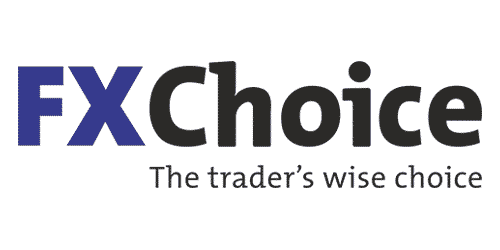Contents
Unlike other funds in our list, it does require a minimum investment of $3,000. Note that an identical ETF version of the fund—ticker VTI —does not require a minimum investment. Its recent trailing twelve-month yield https://traderevolution.net/ was 1.28% as of September 30, 2021. Dividends are one of the perks of investing in large-cap companies. Be sure to compare the dividend yield between index funds as dividends can boost returns, even in down markets.
Invesco S&P 500® Equal Weight ETF has been open to trade since 2003. It tracks the S&P Equal Weight Index and has holdings in over 500 companies. The index contains companies from industrial sectors such as IT, healthcare and finance. These companies include Alexion Pharmaceuticals , NortonLifeLock and PayPal .

The modern exchange-traded fund was invented in 1975 by John Bogle, who founded the investing firm Vanguard Group. Today, it has more than $7 trillion of assets under management. The Daily Upside Newsletter Investment news and high-quality insights signs you aren’t meant to be a programmer delivered straight to your inboxGet Started Investing You can do it. Here’s a look at some promising funds, of the actively managed and passively managed variety. For some of the passive funds, I’ll include similar exchange-traded funds .
The Fidelity Total Bond ETF provides diversification in the fixed income space and offers current income. The fund invests in government, mortgage, investment-grade corporate and junk bonds. After you’ve decided which fund fits in your portfolio, it’s time for the easy part — actually buying the fund. You can either buy directly from the mutual fund company or through a broker. But it’s usually easier to buy a mutual fund through a broker. And if you’re buying an ETF, you’ll need to go through your broker.
Fidelity Total Bond Fund (FTBFX)
4 Top Small-Cap U.S. Index Funds to Buy in 2023 Smaller companies can add up to big returns, and these index funds track them. Investing in S&P 500 index funds is one of the safest ways to build wealth over time. But leveraged ETFs, even those that track the S&P 500, are highly risky and don’t belong in a long-term portfolio. In order to purchase shares of an index fund, you’ll need to do so from an investment account. You can then open an investment account, such as a traditional brokerage account or a Roth IRA, through the brokerage you picked in step 3.

Index funds that track the S&P 500 own stocks included in the index to mimic the performance of the index as closely as possible. Like all index funds, they are passively managed, which means that fund managers only buy and sell stocks to keep the fund’s asset allocation in line with the benchmark. Index funds do not engage in fund research to try to beat the market; they simply strive to match it. Our methodology focused on over two dozen index funds that seek to track the broad U.S. bond market. Funds that track the S&P 500 might not deliver blockbuster returns, but they have a track record of producing good enough results consistently. Since index fund portfolios are automatically diversified, they minimize the risk of investing in individual stocks, particularly in a volatile market where meme stocks run amok.
Like the expense ratio, these taxes can take a bite out of investment returns. These funds are based on an underlying index like NIFTY, SENSEX, etc. and simply mirror the returns of that index. Index Funds are the most advocated way to invest by legendary investors like Warren Buffett for retail investors. Free from Fund Managers’ biases, this list gives you a truly automated equity portfolio of top companies. An index fund can either be a mutual fund or an exchange-traded fund .
Bankrate is compensated in exchange for featured placement of sponsored products and services, or your clicking on links posted on this website. This compensation may impact how, where and in what order products appear. Bankrate.com does not include all companies or all available products. An index fund usually owns at least dozens of securities and may own potentially hundreds of them, meaning that it’s highly diversified. In the case of a stock index fund, for example, every stock would have to go to zero for the index fund, and thus the investor, to lose everything. So while it’s theoretically possible to lose everything, it doesn’t happen for standard funds.
A Total U.S. Stock Market Index Fund
For example, SWPPX doesn’t have a minimum investment requirement. S&P 500 funds are by far the most popular type of index fund. But index funds can be based on practically any financial market, investing strategy, or stock market sector. If you want your portfolio’s value to grow with the U.S. economy and don’t want to choose individual stocks, an S&P 500 index fund could be a smart choice.
Index funds are popular with investors because they promise ownership of a wide variety of stocks, greater diversification and lower risk – usually all at a low cost. Information provided on Forbes Advisor is for educational purposes only. Your financial situation the life of a programmer is unique and the products and services we review may not be right for your circumstances. We do not offer financial advice, advisory or brokerage services, nor do we recommend or advise individuals or to buy or sell particular stocks or securities.
- If you find discrepancies with your credit score or information from your credit report, please contact TransUnion® directly.
- A market index is a collection of a group of stocks that reflects a particular part of the economy.
- Finally, we considered a fund’s minimum investment and most recent 12-month yield.
At Bankrate we strive to help you make smarter financial decisions. While we adhere to stricteditorial integrity, this post may contain references to products from our partners. Brian Beers is the managing editor for the Wealth team at Bankrate. He oversees editorial coverage of banking, investing, the economy and all things money.
Since its inception in December 1998, funds under management have grown close to $24 billion. The fund manager in an Index Fund must invest in all the stocks in the same proportion as it is in the index. So if the index has only limited stocks or one stock has higher weightage, then the portfolio might not be optimally diversified. Among the options go with the one with the lowest expense ratio. When you invest in an index fund, the fund manager of that index fund uses your money to invest in stocks in the same proportion as the index that he is tracking. The Schwab S&P 500 Index Fund provides access to 500 top U.S. companies, tracking the S&P 500 Index.
Schwab U.S. Large-Cap ETF (NYSEARCA: SCHX)
It’s the first fund we’ve found that doesn’t charge an expense ratio. Whether it will outperform the other funds in our list over the long-term is still unknown given is short tenure. With one exception, the funds in our list track the Russell 3000 Index, the Dow Jones U.S. Total Market Index or the CRSP US Total Market Index. In our view, each of these is a reasonable approach to capturing the U.S. equities market.

A market index is a collection of a group of stocks that reflects a particular part of the economy. For instance, the S&P 500 is a stock market index that measures the performance of about 500 companies in the U.S. Typically, the S&P 500’s performance offers a picture of the health of the U.S. stock market and the broader economy.
We’ve maintained this reputation for over four decades by demystifying the financial decision-making process and giving people confidence in which actions to take next. Rob is a Contributing Editor for Forbes Advisor, host of the Financial Freedom Show, and the author of Retire Before Mom and Dad–The Simple Numbers Behind a Lifetime of Financial Freedom. He graduated from law school in 1992 and has written about personal finance and investing since 2007. Overvaluation can occur when some stocks are priced too high.
Why invest in index funds?
If the commission or transaction fee isn’t waived, consider how much a broker or fund company charges to buy or sell the index fund. Mutual fund commissions are higher than stock trading ones, about $20 or more, compared with less than $10 a trade for stocks and ETFs. FNCMX has an expense ratio of 0.20%, meaning for every $1,000 invested you’d pay a $3.50 fee annually. FNCMX aims to mirror the performance of the Nasdaq Composite index.
Aggregate Bond Index, Bloomberg publishes sub-indices that make important changes to its flagship index. These sub-indices include a float adjusted index, which Vanguard uses for its total bond index fund. Bloomberg added this sub-index in 2009 to respond to the Federal Reserve’s QEbond buying. The float adjusted benchmark excludes securities held by the Fed.
What Are S&P 500 Index Funds?
There is no minimum investment required and its net expense ratio is just 0.03%. Its trailing twelve-month yield was 1.41% as of September 30, 2021. Investing in a total stock market index fund provides you with a simple, inexpensive way to diversify your U.S. equity exposure. But not every option is the same—each relies on different underlying indexes and methodologies to mirror the U.S. stock market.
This ETF began trading in 2010, and it’s backed by Vanguard, one of the powerhouses of the fund industry. Here’s everything you need to know about index funds, including ten of the top ones to consider adding to your portfolio this year. We’re transparent about how we are able to bring quality content, competitive rates, and useful tools to you by explaining how we make money. Bankrate follows a strict editorial policy, so you can trust that our content is honest and accurate.
Select the fund of choice
Her passion is for options trading based on technical analysis of fundamentally strong companies. She especially enjoys setting up weekly covered calls for income generation. VNQ tracks the returns of the MSCI US Investable Market Real Estate 25/50 Index and currently holds a portfolio of 171 equities. The top-10 holdings weigh about 45% of total net assets of $83.3 billion. SDY returned over 13.3% YTD and just more than 22% in the last 52 weeks.
The 7 Best Vanguard Index Funds for 2021
We are compensated in exchange for placement of sponsored products and, services, or by you clicking on certain links posted on our site. Therefore, this compensation may impact how, where and in what order products appear within listing categories. While we strive to provide a wide range offers, Bankrate does not include information about every financial or credit product or service. Finally, we considered a fund’s minimum investment and most recent 12-month yield.
We continually strive to provide consumers with the expert advice and tools needed to succeed throughout life’s financial journey. Bankrate follows a strict editorial policy, so you can trust that we’re putting your interests first. Founded in 1976, Bankrate has a long track record of helping people make smart financial choices.